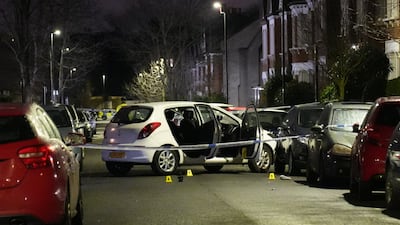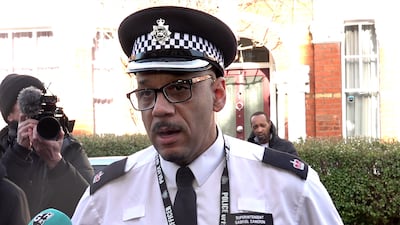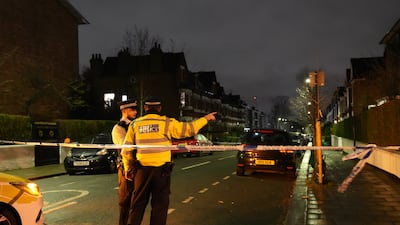The Clapham chemical attacker, Abdul Ezedi, was granted asylum by a judge despite concerns he had been untruthful about several aspects of his life, court records show.
The raft of previously confidential documents detail how some of those who supported Ezedi, an Afghan national, during the process were aware of his crimes. The papers detail an agreement Ezedi, a convicted sex attacker, signed to be effectively escorted during church services as a result.
The immigration tribunal court documents also laid bare the lengths he went to to persuade church authorities and judges he had genuinely become a Christian.
Ezedi's body was pulled from the River Thames amid a major manhunt after he was suspected of dousing his ex-girlfriend with an alkali when he pounced on her and her children, aged eight and three, in Clapham, south London, in January.
The case sparked widespread debate about the role religion plays in determining asylum claims, while also raising questions over how the government and courts scrutinise the validity of evidence presented in applications.
In a ruling dated November 10 2020, Judge WK O'Hanlon, sitting in the First-tier Tribunal (Immigration and Asylum Chamber), said Ezedi had “not been honest in several aspects of his account” and described problems which caused him to “doubt” his “credibility”, according to the documents.
But the judge later stressed the courts were “not unfamiliar with the difficulties created by appellants who have not been truthful but who may still be at risk”, adding: “We must be very careful not to dismiss an appeal just because an appellant has told lies.”
“Although I found that the appellant had not been honest in relation to other aspects of his claim … because that is the case it did not automatically mean that his evidence in relation to his claimed conversion could not be believed,” he added.
The documents include never-before-seen pictures that capture the moment he was baptised and show how he handed out church leaflets.
The judge said: “Having considered all of the evidence before me in the round, notwithstanding my concerns as to the honesty of the appellant (Ezedi) in relation to certain aspects of his account, I find that the appellant had been consistent in his evidence with regard to his conversion to Christianity.
“Having taken all of these factors into account, I am satisfied … the appellant has undergone a genuine conversion from his former Muslim faith to Christianity and that accordingly … would be at risk in the event of return to Afghanistan. I therefore allow his asylum appeal,” he added.
Manhunt for London chemical attack suspect – in pictures
The documents were released on Tuesday after the court granted submissions from the PA news agency alongside the Daily Mail, the Daily Telegraph, the Times, the BBC and the Independent, who argued disclosure was in the public interest.
Ezedi arrived in the UK on January 8, 2016, but his initial asylum claim was refused by the Home Office, with an appeal later rejected by the courts the following year, according to the documents.
He was handed a suspended sentence at Newcastle Crown Court on January 9, 2018, after pleading guilty to charges of sexual assault and exposure, instead being placed on the sex offender register for 10 years and ordered to carry out 200 hours of unpaid work.
Just over a year later, on March 19, 2019, he challenged the decision again by lodging an appeal with the First-tier Tribunal (Immigration and Asylum Chamber), arguing he feared persecution because of his religion.
The papers confirm his claim was granted after a hearing in Newcastle on October 28, 2020.
Lawyers representing Ezedi argued he had “converted from Shia Islam to Christianity (Baptist)".
“The punishment for this in sharia law which is practised in Afghanistan would be execution”, the documents said, adding that he “enjoys practising and sharing his Christian faith with others”.
But, during proceedings, the Home Office's legal team said the government department did not accept Ezedi's conversion was “genuine and long-lasting”.
Ezedi was “prepared to deceive” and “use religion for his own ends” and had been unable to demonstrate a “clear understanding of Christian principles and beliefs”, according to court records of the Home Office's submissions.
Last week the Archbishop of Canterbury said there was “no evidence” to support claims the Church of England was “subverting the asylum system” by allowing spurious conversions to Christianity.










